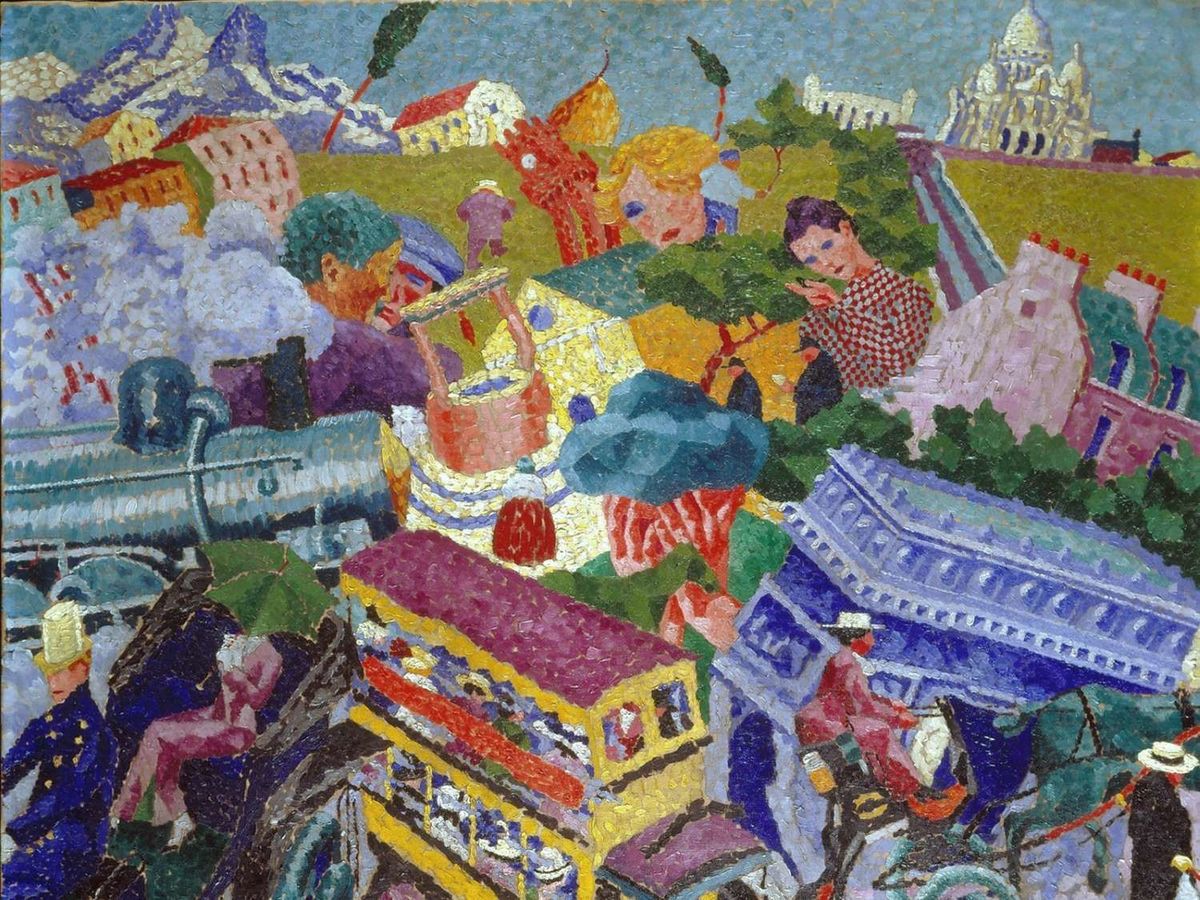Pope St. John Paul II addressed the problem of abortion in a holistic setting, which many today seem to have forgotten, in the encyclical Evangelium Vitae—once considered a magna carta of the pro-life movement. Throughout the encyclical, John Paul II makes abundantly clear that abortion cannot be addressed in isolation from the host of social, political, cultural, and economic factors that make it possible in modern societies. Among those factors, John Paul II’s comments on the political and even constitutional dimensions of the abortion question have gone seemingly unnoticed in recent heated conversations within the pro-life movement.
Pro-life strategy has long been constrained by electoral politics. Pro-life activists often work at the state-level for the passing of pro-life laws, with some measure of success. Meanwhile, with every presidential election, pro-life voters hope to see their candidate take office and appoint a pro-life judge to the Supreme Court, in the hopes that the Court will one day reverse Roe v. Wade (a prospect which never comes to fruition, despite years of a conservative-dominated Court).
Pro-life victories tend to remain at the state level, though they are limited by restrictions that have been in effect since Roe. At the federal level, pro-life executive orders are routinely reinstated and reversed, as candidates from the two leading parties take turns coming into office. At both levels, the outcome depends on generating a majority vote and a favorable election.
Obviously, pro-life victories are to be celebrated wherever they occur. The election of a president who will re-enact measures like the Hyde Amendment or the Mexico City Policy is certainly to be celebrated. Likewise, the passing of pro-life legislation through democratic processes at the state level is also a thing to be welcomed. So long as the accepted procedures do allow for such victories, those victories should be readily and joyfully acknowledged.
At the same time, the limitations of such victories in the present context must also be recognized. It cannot be ignored on what shaky ground such victories rest in the present arrangement. Nor will the shakiness of such victories be remedied simply by overturning Roe v. Wade and relegating abortion to the democratic processes of the states. The opinion of any majority vote, even if protected by the structures of legality that have ostensibly been set up in our Constitution, is liable to change and thereby to produce very opposite outcomes. While a vote in favor of the unborn is a thing to be welcomed, defenders of the American constitutional order should ask themselves whether a civilized society should allow the rights of the unborn to be subjected to a popular vote in the first place.
This is not merely a question of strategy, but also a question of basic moral priorities and the common good. Not only is there a case to be made that a strategy that is limited to overturning Roe and restoring abortion to the states is probably going to lose, but there is also a strong case to be made that such a strategy is misguided on deeper moral grounds, because it sets up an order of moral goods that is fundamentally backwards. Pro-life advocates who work for the abolition of abortion while also seeking to maintain the right of states to decide the question of abortion through a democratic process would do well to return to the basic moral insights provided by Pope John Paul II in Evangelium Vitae.
There the pope demonstrates how the issue of the right to life brings into stark relief the absolute limitations of liberal democracy. In this way, the question of abortion in a democratic society becomes fundamentally a question of the morality of constitutional order, requiring the defenders of the unborn to rethink their commitments to classical liberal democracy.
In §18-20, the pope examines the contradictory phenomenon of a democratic society which purports to uphold the dignity of the human person while at the same time condoning the worst offenses against that same dignity, in the forms of abortion, euthanasia, and other crimes against life. The pope traces this contradiction back to a faulty understanding of freedom, one that divorces freedom from its true connections to truth and to solidarity—a liberal and individualistic freedom:
The roots of the contradiction between the solemn affirmation of human rights and their tragic denial in practice lies in a notion of freedom which exalts the isolated individual in an absolute way, and gives no place to solidarity, to openness to others and service of them. While it is true that the taking of life not yet born or in its final stages is sometimes marked by a mistaken sense of altruism and human compassion, it cannot be denied that such a culture of death, taken as a whole, betrays a completely individualistic concept of freedom, which ends up by becoming the freedom of “the strong” against the weak who have no choice but to submit.
In other words, a purely individualistic conception of human freedom actually results in, and provides cover for, the unjust oppression of individuals who are, from the beginning, at a disadvantage within society. True freedom, according to John Paul II, is at the service of the common good of humanity. Thus, the pope writes:
It is precisely in this sense that Cain's answer to the Lord's question: “Where is Abel your brother?” can be interpreted: “I do not know; am I my brother's keeper?” (Gen 4:9). Yes, every man is his “brother's keeper,” because God entrusts us to one another. And it is also in view of this entrusting that God gives everyone freedom, a freedom which possesses an inherently relational dimension.
Similarly, John Paul II insists that freedom cannot be separated from truth, but can only be rightly understood as being entirely at the service of truth. “Freedom negates and destroys itself, and becomes a factor leading to the destruction of others, when it no longer recognizes and respects its essential link with the truth.” The pope observes that such a form of freedom leads only to the toleration of radical evil, insofar as “the person ends up by no longer taking as the sole and indisputable point of reference for his own choices the truth about good and evil, but only his subjective and changeable opinion or, indeed, his selfish interest and whim.”
When the determination of truth and falsity, good and evil, is left to the absolute autonomy of the individual, society itself is reduced to no more than the space for negotiation and compromise between individual desires. The result is that “everything is negotiable, everything is open to bargaining: even the first of the fundamental rights, the right to life.” The democratic and majoritarian procedure by which the right to life is negated is the direct institutional application of the above logic. When society is unmoored from all common reference to shared morality and the common good, then the very question of what is good or evil becomes merely a matter of vote:
This is what is happening also at the level of politics and government: the original and inalienable right to life is questioned or denied on the basis of a parliamentary vote or the will of one part of the people-even if it is the majority. This is the sinister result of a relativism which reigns unopposed: the “right” ceases to be such, because it is no longer firmly founded on the inviolable dignity of the person, but is made subject to the will of the stronger part. In this way democracy, contradicting its own principles, effectively moves towards a form of totalitarianism.
The pope continues:
The appearance of the strictest respect for legality is maintained, at least when the laws permitting abortion and euthanasia are the result of a ballot in accordance with what are generally seen as the rules of democracy. Really, what we have here is only the tragic caricature of legality; the democratic ideal, which is only truly such when it acknowledges and safeguards the dignity of every human person, is betrayed in its very foundations . . . When this happens, the process leading to the breakdown of a genuinely human co-existence and the disintegration of the State itself has already begun.
This is where Pope John Paul II gets to the crux of the issue. The issue is not merely a question of liberal ideology, but of the instantiation of that ideology in the political structures that circumscribe modern politics. It is even a question of constitutional form: one cannot escape the impression that the pope is criticizing, not merely the ideology or even the moral intentions of those who vote to legalize infanticide through the democratic process, but the structure itself of a constitution which allows grave matters of the natural law to be decided by a democratic process in the first place.
To be sure, the Catholic Church has never condemned democracy per se; indeed, in Evangelium Vitae, Pope John Paul II even presents himself as a defender of true democracy. At the same time, John Paul II’s teaching in that encyclical amounts to nothing short of a declaration that some issues simply cannot be left to the changeable whims of a democratic majority. This is not to condemn democracy, but to delineate its absolute limits and specify the pre-democratic conditions in which alone it can be true to its own nature.
There is something fundamentally wrong with a political system in which no institutions exist where the rights of the unborn may find permanent protection, since all the major institutions are subject to the whims of a majority. In other words, for the protection of the natural law and the rights of the unborn, a constitutional order is required that is in some respects pre-democratic, even “authoritarian,” which will relentlessly pursue the common good without tolerance for those who would commit radical evil against the most defenseless among us.
What practical measures may be adopted to put such constitutional structures in place? This is a complex question, to be hashed out by constitutional scholars and legal philosophers. Yet common sense and Catholic moral sensibility might at least suggest that a system in which the right to life is continually subject to the changing tides of elections, at either the federal or the state level, is morally unsustainable. As long as pro-life advocates remain attached to a constitutional order where, in the name of equal representation, the oppressors of the unborn should be allowed to run for office every four years, then it should be no surprise that abortion continues unabated in this country. Representative democracy is not worth those unborn lives. Some things should never be up for vote.


